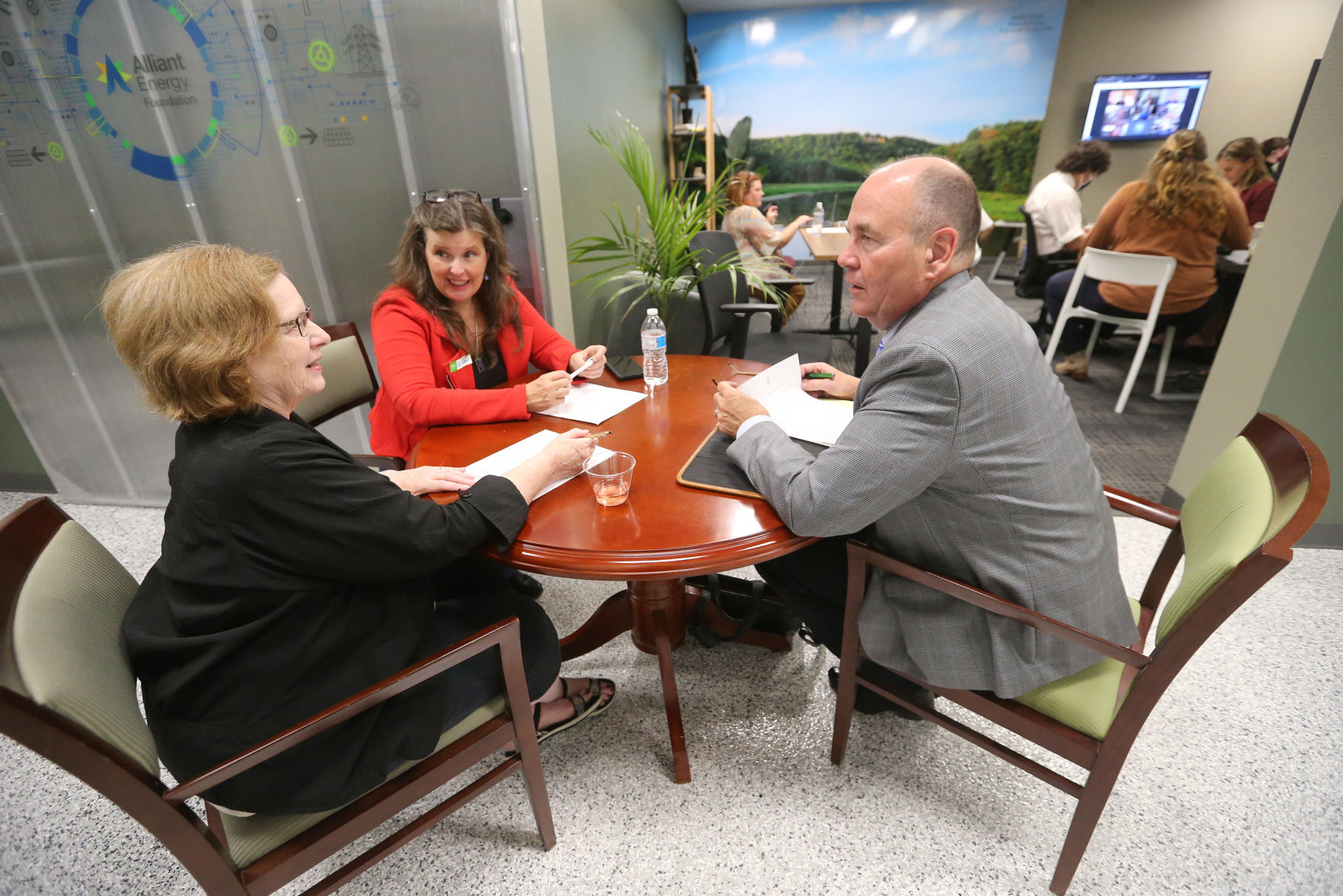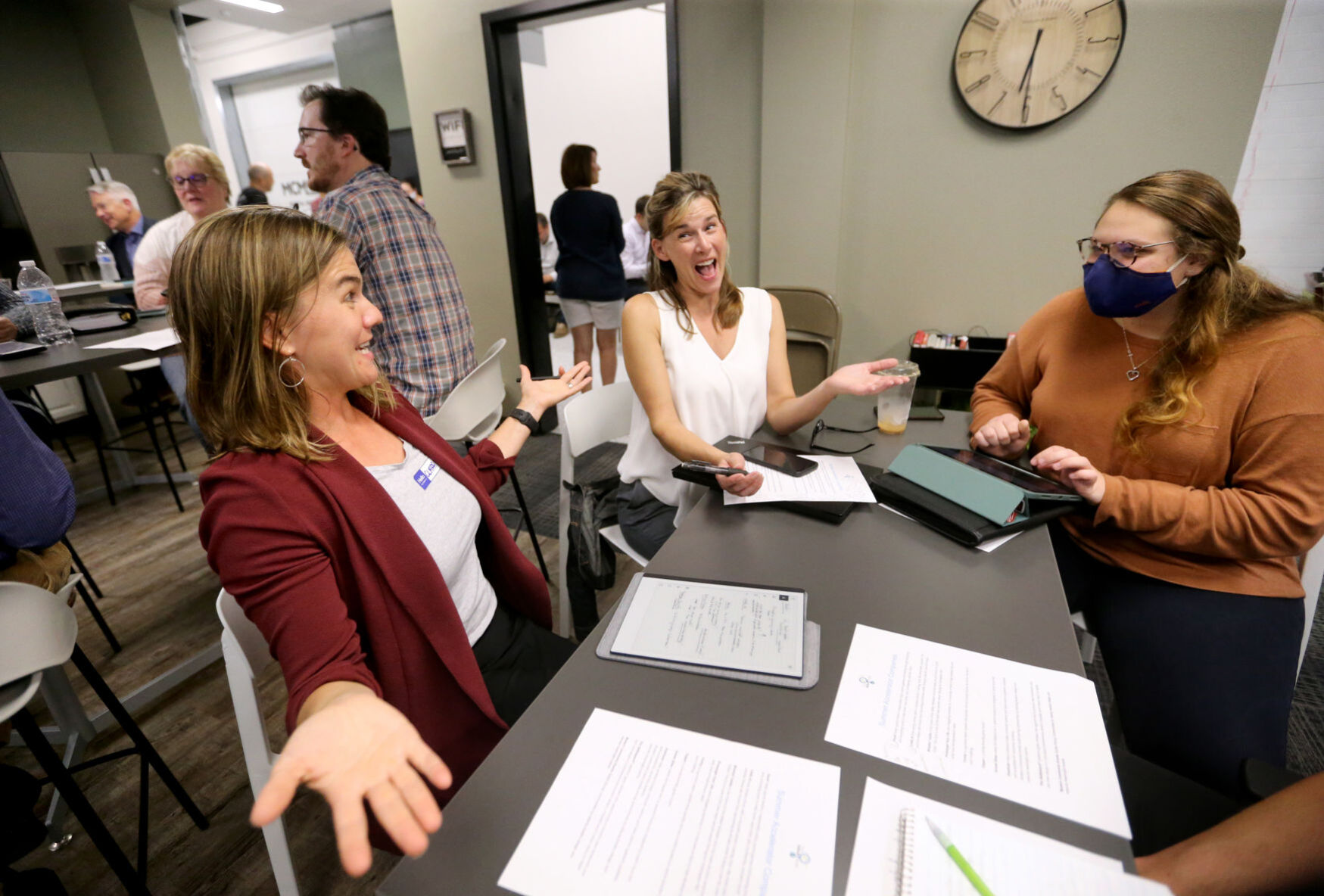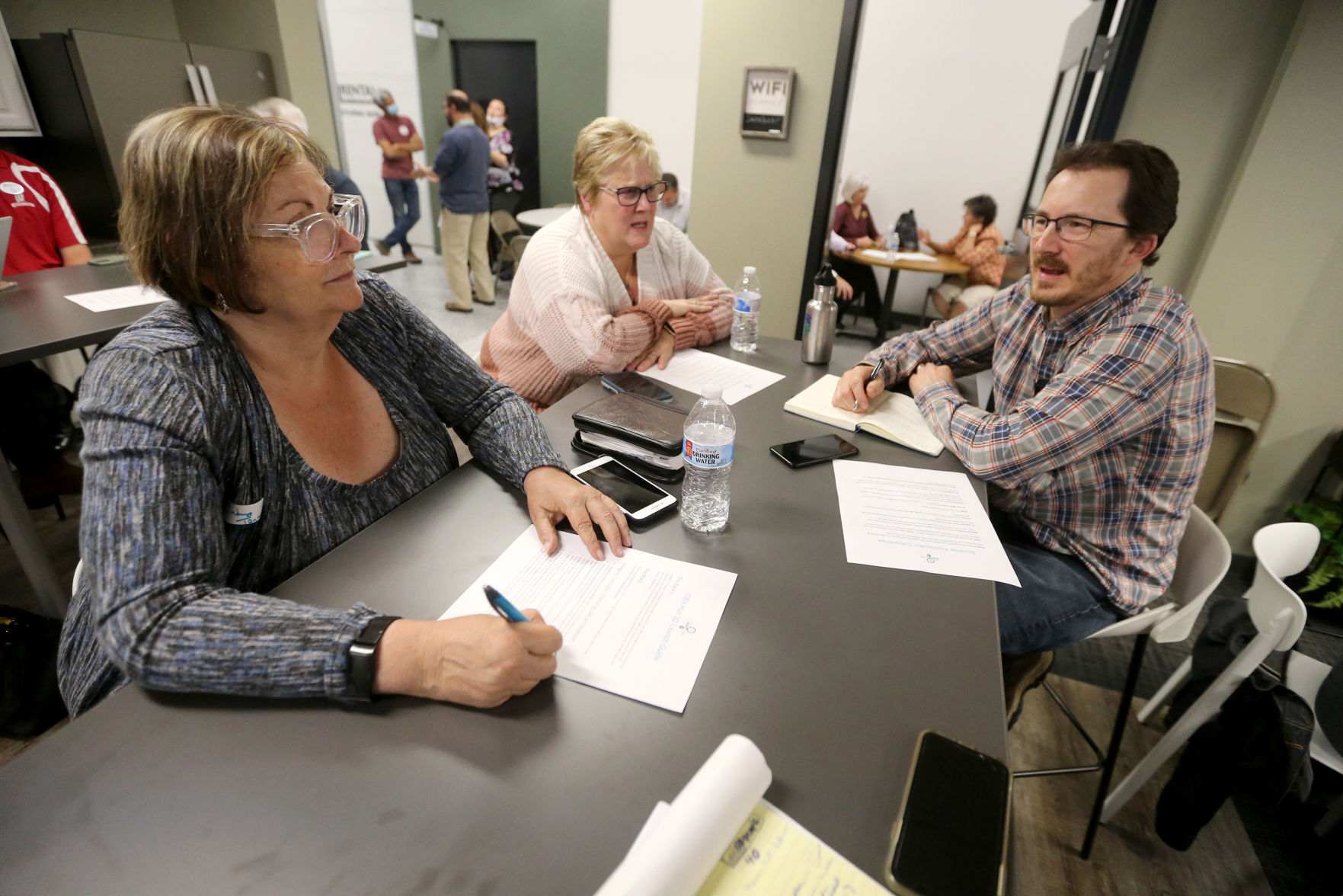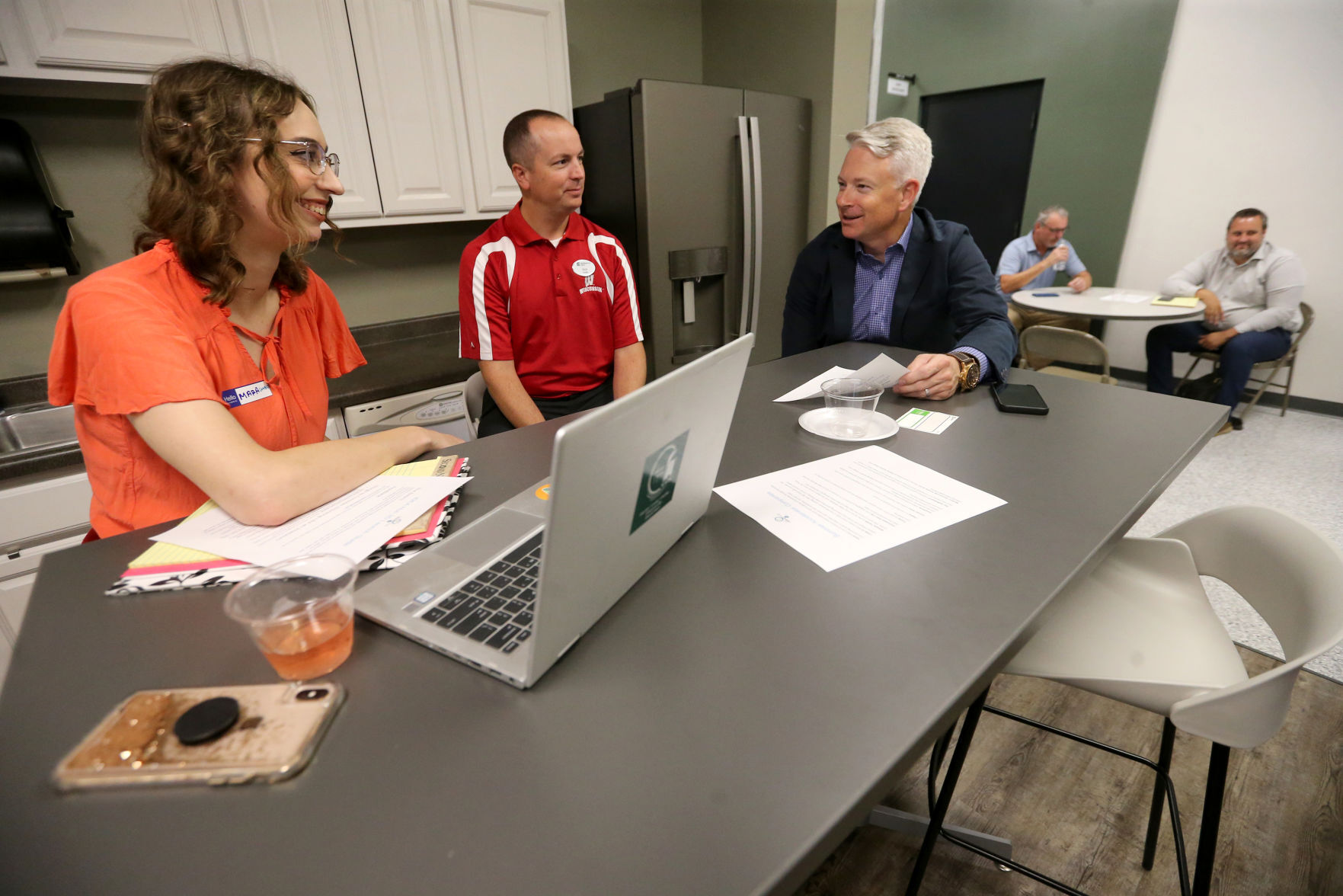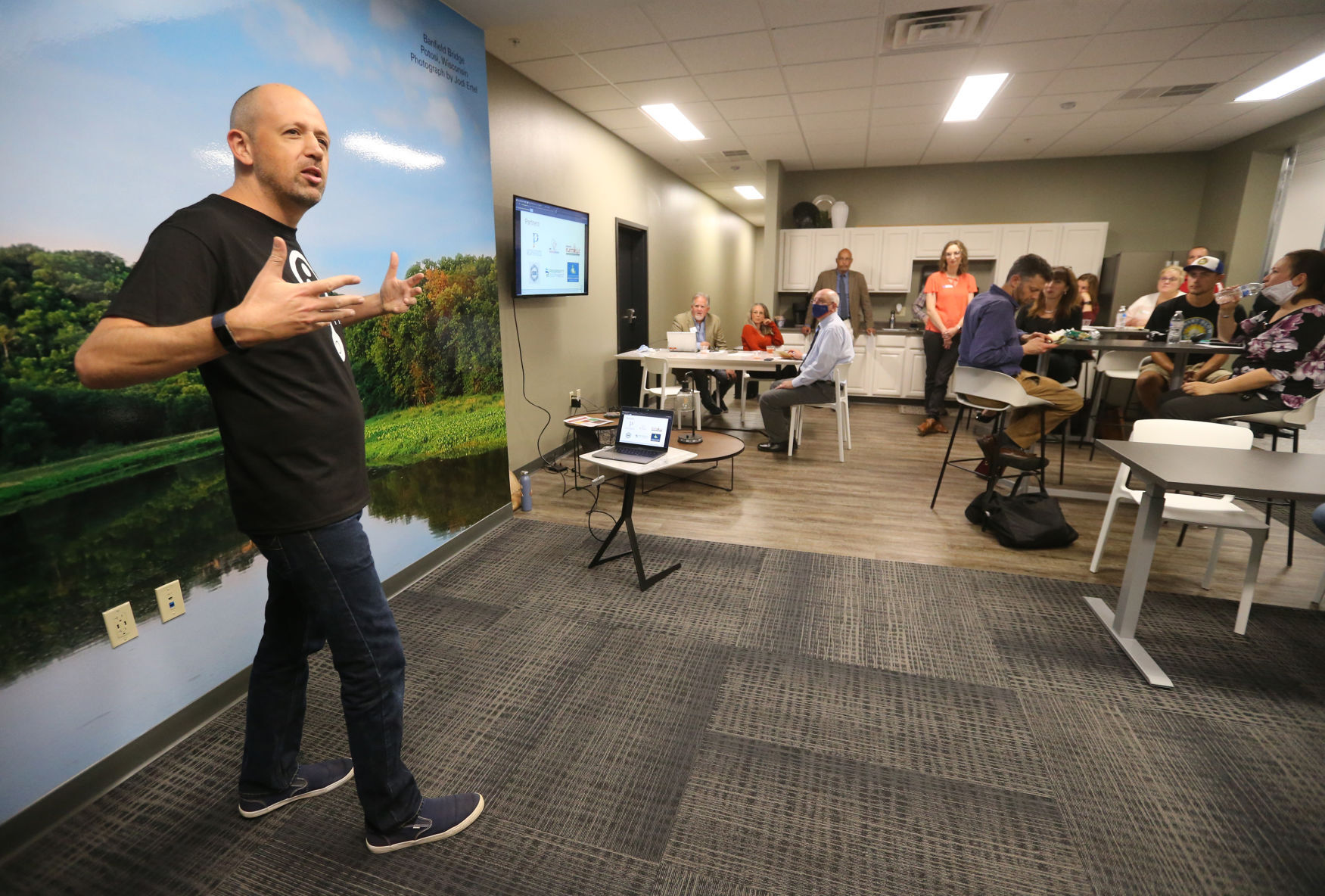PLATTEVILLE, Wis. — Antonette Cummings has an idea for solving three pressing problems.
In the tri-state region, abandoned mines rear their heads. Sinkholes form. Coal ash can be found at retired power plants. And unwanted plastics are ubiquitous.
“It is fixing a problem that has come to a head. Our hope is that we get this intellectual baby born, and we have ExxonMobil adopt it,” she said. “I don’t see myself as a business founder offering to run my robot.”
Cummings, a University of Wisconsin-Platteville assistant professor of mechanical engineering, aims to line abandoned mines with recycled plastic, then stuff them to capacity with coal ash, a toxic byproduct from coal power plants.
Granted, the ash contains heavy metals and should not be handled by people. Hence the robot.
Cummings is developing her idea with assistance from UW-P’s Innovation Driving Entrepreneurship Accelerator Hub, which offers courses in startup creation and ongoing support for entrepreneurs.
More than 40 people attended the hub’s grand opening Monday at Platteville Business Incubator, where it is housed. The event showcased 10 startups, whose backers offered mock pitches to solicit feedback from audience members.
“Getting the coal ash into the mine seems extraordinarily expensive,” said Ryan Del Balso, a Platteville entrepreneur who has started a specialty pillow manufacturing business.
He and his group offered feedback following the presentations, singing the praises of several proposals, including businesses that would sell improved fishing lures, a sports betting app and a gunshot alarm system.
The entrepreneurs participated in an eight-week class this summer that focused on identifying markets, mentorship, revenue and cash flow, teambuilding and culture, performance indicators and investor cultivation. They will continue to receive support as they continue to develop their businesses.
In the IDEA Hub’s first three years of operation, UW-P officials and local economic development leaders intend to spur the creation of 30 businesses and 55 jobs across a five-county region. Entrepreneurs will have opportunities for mentoring, networking and consultation with staff and UW-P faculty.
Regional, comprehensive universities such as UW-P must be attuned to their local communities, said Chancellor Dennis Shields. The IDEA Hub is a manifestation of that mission.
The U.S. Economic Development Administration awarded the hub more than $500,000 in 2020, an amount that was matched by local stakeholders.
The program fills a knowledge gap, said Jeremiah Donohue, the hub’s director.
“For most startup founders, you don’t have anybody telling you what to do next,” he said.
Kate Koziol, executive director of Platteville Business Incubator, said community involvement plays a critical role in helping new companies develop, whether it involves sparking an idea through feedback sessions or introducing startup leaders to people who might become investors or future employees.
“It’s to help these businesses get a little more public, to showcase services and to tap these new businesses into the broader community to allow them to use resources and source all their elements locally,” she said.
Donohue intends to make the pitching event an annual happening. The hub also has additional events planned this fall, including an entrepreneurship workshop and an idea development session for UW-P students.
“Ideas are all the same everywhere at the beginning,” he said. “It’s the community around that decides whether these companies succeed or fall flat along the way.”
Donohue will continue to meet with teams as they develop their concepts. Several are at different stages in development, he said, with some already selling their products or funded through investors.
Cummings and her business partner currently are overseeing student design teams. Hers is working on the robot.
She hopes to have a prototype developed in five years, ready to scale up. Federal grant funding is plentiful, and agencies are looking for solutions to a critical problem, she said.


